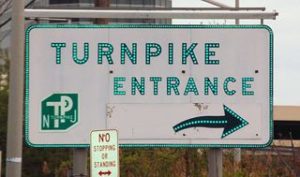July
2015
New Jersey Court Rules There is No Private Cause of Action for Bad Faith Breach of a Surety Bond
The District Court of New Jersey recently dismissed Federal Insurance Co. (“Federal”) from a case ruling that New Jersey does not recognize bad faith breach of a surety bond as a private cause of action. U.S. Sewer & Drain, Inc. v. Earle Asphalt Co., No. CIV. 15-1461, 2015 WL 3461087, (D.N.J. June 1, 2015).
On February 23, 2015, U.S. Sewer & Drain (“U.S. Sewer”) filed suit in the District Court of New Jersey against Earle Asphalt Co. (“Earle”) and Federal. In the case, U.S. Sewer alleged that Earle refused to pay for work performed on a project for the New Jersey Turnpike Authority. U.S. Sewer also asserted claims for bad faith and civil conspiracy against Federal for failing to pay U.S. Sewer’s claims on a surety bond issued by Federal for the project. Earle and Federal each filed a motion to dismiss.
In its motion, Federal argued that no private cause of action existed for U.S. Sewer’s claims. In response, U.S. Sewer argued that In re Midland Ins. Co., 167 N.J. Super. 237, 400 A.2d 813 (App. Div. 1979), which analyzed N.J.S.A 17: B-4(9)(f) of the Unfair Claims Settlement Practices Act (“UCSPA”), established a cause of action. The court disagreed, finding that In re Midlands did not establish a private cause of action and that the case was overruled by N.J.A.C. 11:2-17.2 in 1982, which said, “[N.J.S.A. 17:29B-4(9)] applies to all persons and all policies except the following: ocean marine, fidelity and surety, boiler and machinery and workers’ compensation.”
U.S. Sewer argued that ex rel Don Siegel Constr. Co v. Atul Constr. Co., 85 F.Supp.2d 414 (D.N.J.2000) established a cause of action for bad faith breach of surety bond. Again, the court disagreed, reasoning that not one court has followed the holding in Atul. The court granted Federal’s motion in full, dismissing both the bad faith and civil conspiracy claims as the conspiracy claim could not stand without the bad faith claim.
Earle’s motion to dismiss claims of unjust enrichment, quantum meruit, and punitive damages was denied. No appeals have been filed yet.




